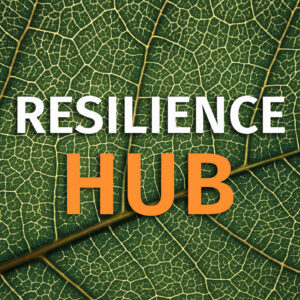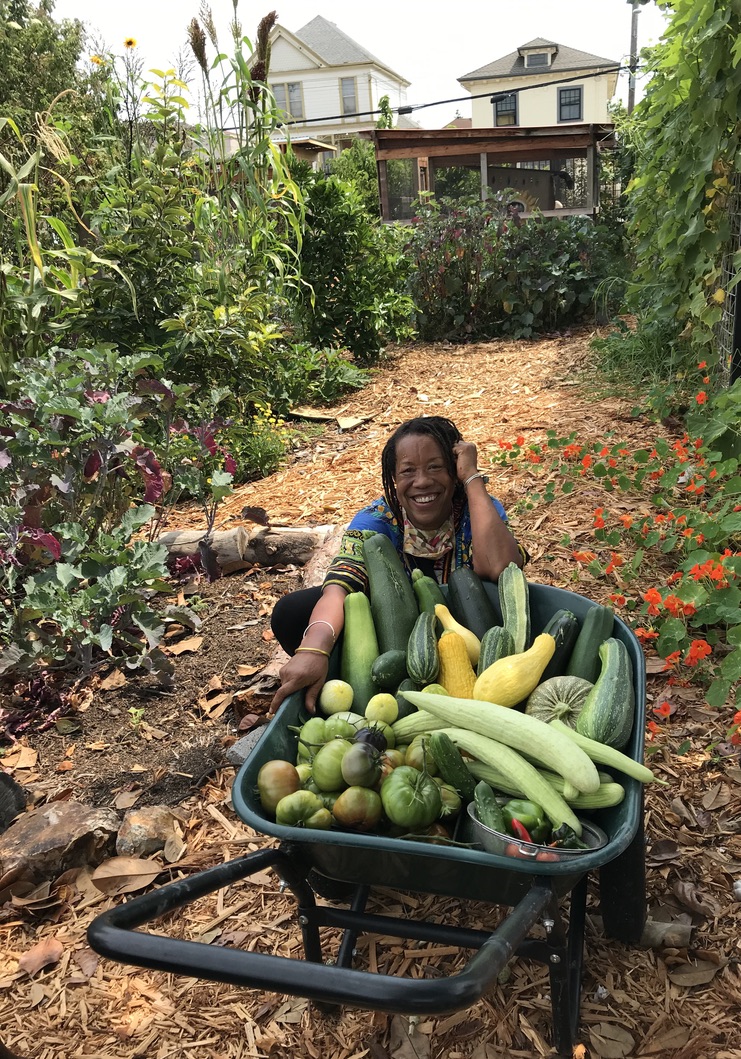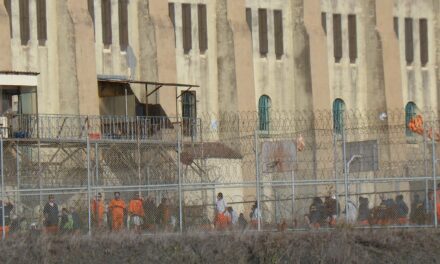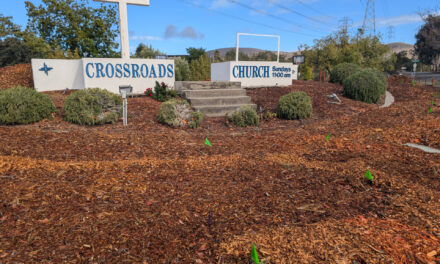Mama Wanda Sows Resilience
Wanda Stewart stood out in her bright yellow overalls at Hoover Elementary’s garden work day celebrating Black History Month last spring. Known affectionately by the community as Mama Wanda, she flitted through the garden like a bee, swarmed by people and activity.
After a career of school administration and community engagement, Stewart saw firsthand how schools can be a central space for activating people. But it wasn’t until she moved to Berkeley, started growing food on her own land, and fell under the mentorship of legendary East Bay gardener Victory Lee that she saw how her experience with schools and love of gardening could come together to generate transformational change.
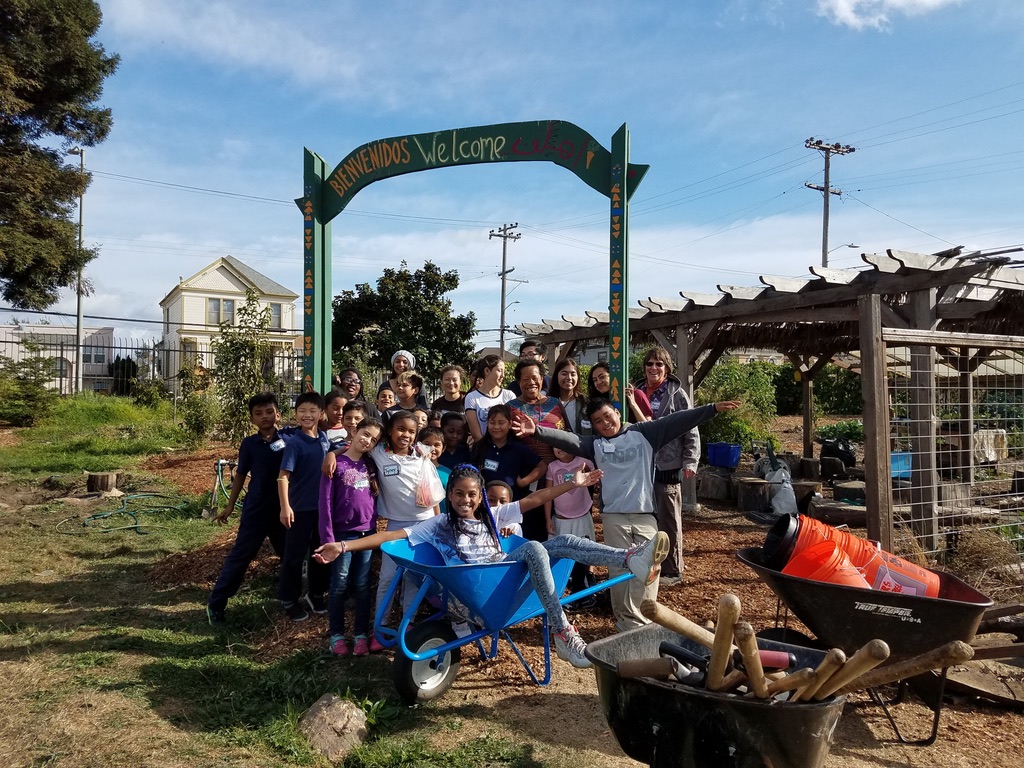
“By growing gardens in schools, we’re not just growing the children. We’re growing neighborhoods.”
Stewart went on to lead the food justice nonprofit People’s Grocery and build a garden at Hoover Elementary in West Oakland. All the while, she honed her philosophy: “By growing gardens in schools, we’re not just growing the children. We’re growing neighborhoods. We’re growing the earth and improving the planet.”
Stewart is now Executive Director of Common Vision, a fifteen-year-old nonprofit working at the nexus of food, learning, and the environment. Common Vision began with fruit tree planting in schools and now also educates youth, cultivates school gardens, and engages in urban forestry.
Stewart is quick to say that just like school gardens, trees offer multiple benefits. Trees clean the air, produce fruit, shed leaves that can generate compost, and even lower crime. Trees and gardens can also provide heat relief for community members and students. The greenery and shade can be crucial for schools with heat-absorbing blacktop playgrounds like Hoover Elementary, while also offering what Stewart calls “psychological cooling of the spirit.”
When Common Vision plants shade trees, youth conduct neighborhood outreach to inform residents of their benefits. This deep relationship building strengthens community support networks so communities can better respond to public health and climate crises.
Other Recent Posts
Reforming Rules to Speed Adaptation
Bay Conservation and Development Commission to vote early this year on amendments designed to expedite approval of climate projects.
Warner Chabot Shifts Gears
After 11 years at the helm of the Bay Area’s leading science institute, its leader moves back into the zone of policy influence.
Is Brooklyn Basin Emblematic of Regional Development Vision?
The 64-acre waterfront development adds thousands of new housing units to one of the world’s most expensive places, but questions remain about its future.
Coordinate or Fall Short: The New Normal
Public officials and nonprofits say teaming up and pooling resources are vital strategies for success in a climate-changed world.
Pleasant Hill Gets Sustainable Street Improvements
An intersection redesign with safer bike lanes earned a national Complete Streets award, while sparking mixed reactions from drivers.
Six Months on the Community Reporting Beat
The magazine worked with four journalists in training from community colleges, and began building a stronger network in under covered communities.
Rio Vista Residents Talk Health and Air Quality
A Sustainable Solano community meeting dug into how gas wells, traffic, and other pollution sources affect local air and public health.
New Year Immerses Concord Residents in Flood Preparations
In Concord, winter rains and flood risks are pushed residents to prepare with sandbags, shifted commutes, and creek monitoring.
What You Need to Know About Artificial Turf
As the World Cup comes to the Bay Area, artificial turf is facing renewed scrutiny. Is it safe for players and the environment?
Threatened by Trump’s Policies, GreenLatinos Refuses to Back Down
National nonprofit GreenLatinos is advancing environmental equity and climate action amid immigration enforcement and policy rollbacks.
When Oakland public schools closed at the start of the pandemic, Stewart coordinated a big harvest of collard greens and the herbs mullein, mint, plantain, and oregano to distribute to the kids. Afterward, the power of gardens as sites of individual and community resilience hit her: “There’s this fear of ‘here comes the apocalypse,’ but what made me cry was how empowered I felt because I had just fed the children and sent them home with food that was medicine. We had established gardens that could sustain us when the pandemic showed up in ways we hadn’t anticipated. Those four herbs are the herbs that one needs for respiratory distress. Those children had the tools to help their families. They knew how to grow those collard greens.”
Moving forward, Common Vision plans to help high school youth plant 2,000 trees in West Oakland and 5,000 trees in San Leandro. Meanwhile, Stewart says, “I am doing my best work as a climate resilience leader by first growing my best self — the best Wanda I can be.”
Top Art: Alyson Wong. Photos courtesy Common Vision.



